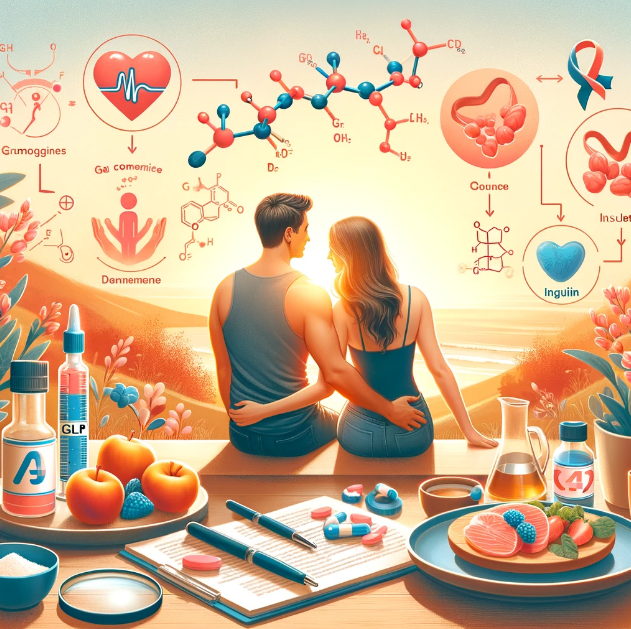GLP-1 might reverse two powerful trends of our time – loneliness and declining birth rates
GPT is well-known to everyone. New York University marketing professor Scott Galloway believes that another acronym, GLP-1, will impact humanity no less than chatbots.
Glucagon-like peptide-1 is a hormone that stimulates the pancreas to produce insulin. A few years ago, Novo Nordisk marketed its synthetic form (semaglutide) under the brand Ozempic. However, it turned out that this drug and its analogs are not only good for treating diabetes. People taking them lose appetite, feel fuller for longer, and consequently lose weight. As a result, semaglutide is currently the most effective (and popular!) weight loss agent.
And here’s where it gets interesting. I once cited WHO’s dire statistics, which indicate there are 1 billion people with clinical obesity in the world (roughly every eighth person). It seems that many of these individuals will eventually start taking semaglutide-based drugs (in the US alone, 9 million prescriptions were issued in the fourth quarter of 2022!).
But the medical effect won’t be the only outcome. The reduced appetite of millions will lead to changes in consumer behavior. They will less frequently:
- visit cafes and restaurants
- eat street fast food
- snack on chips, bars, and other junk food.
This “side effect” of GLP-1 is already making itself known. Morgan Stanley surveyed 300 Ozempic users, and 77% said they visit fast-food restaurants less often (other changes are shown in the infographic). Walmart also noticed that consumers of weight loss products buy less food.
If GLP-1 use becomes widespread, besides the food industry, others will be affected:
- As a result of mass weight loss, revenue at fitness clubs and gyms may fall – they are often visited by those trying to lose weight.
- The alcohol and tobacco industries are also at risk. It turns out that weight loss drugs also weaken the effect of addictive substances (whether nicotine, opioids, or alcohol). Some estimates suggest that due to the popularity of GLP-1, alcohol sales in the US alone will decrease by $3.5 billion by 2025.
Conversely, airlines will benefit. United Airlines has calculated that it will save $80 million a year in fuel costs if its passengers lose an average of 10 kg. Clothing manufacturers will also not be at a loss. People who lose weight will update their wardrobes to match their new body proportions. Moreover, the money saved on calorie purchases will surely find new uses, and clothing here is one of the possible beneficiaries.
Looking into the far future, the thinning of the masses may reverse two powerful trends of our time – loneliness and declining birth rates. It’s nice to think that slimmer and healthier people will find it easier to make acquaintances and build families.
Of course, there are still many unknowns in this story. We don’t know how GLP-1 will perform in the long term – some side effects may manifest later. One thing is clear: the potential for societal change here is immense, and I will definitely be watching this story closely.





